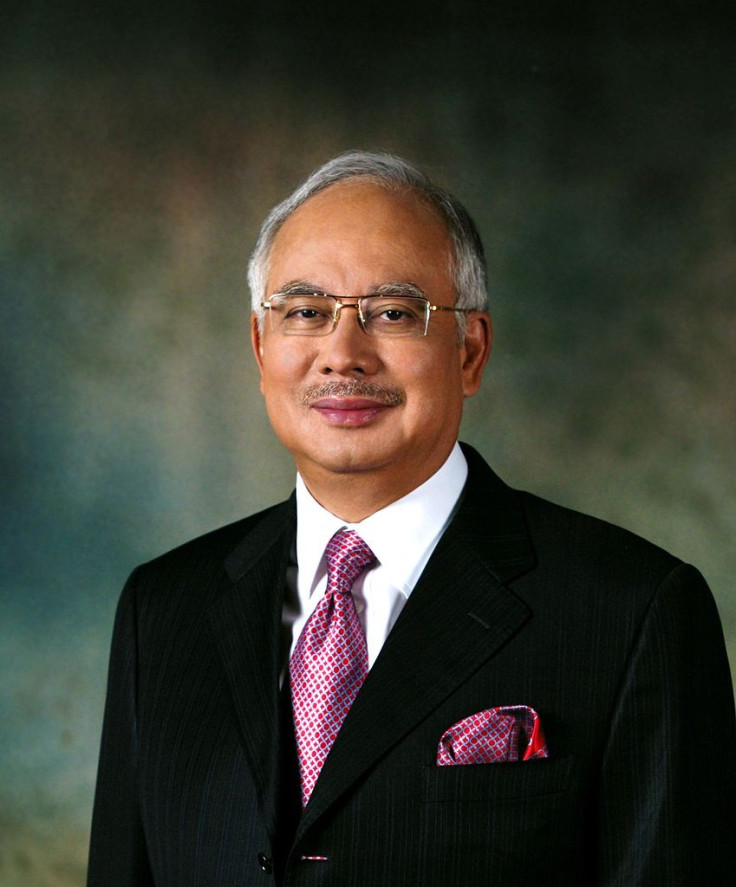Malaysia questions FinanceAsia's motive in tagging Najib Razak as Asia's worst finance minister

Malaysia's Ministry of Finance has come out with guns blazing, questioning the motive behind FinanceAsia's move to crown Finance Minister Najib Razak as the 2016 worst finance minister in Asia Pacific. In a statement, the government accused the e-magazine of trying to increase its readership.
The ministry asked: "As Asia has 48 countries, does being in the 12th position make Najib the worst finance minister in the region?" It also listed achievements in Malaysia's economy, attributing its growth to the leadership of Najib, who is also the country's prime minister.
The MoF said it was unethical for the magazine to make a judgement on Najib's performance as the finance minister based on developments within 12 months, backed by "baseless and biased allegations." It said making Malaysia, under Najib's leadership, the target of untoward criticisms was worrying as it seemed to imply that the country was not stable, Bernama, the national news agency reported.
It said the article by FinanceAsia suggested that Malaysia was in the doldrums, which it strongly denied. It said: "Despite uncertainty in the global economy, Malaysia is optimistic of attaining its GDP target of 4.5% this year. If Malaysia could register a 4.5% growth amid the economic slowdown, it would imply that Malaysia's economy is still strong compared with other Asian countries."
Malaysia's gross domestic product (GDP) grew from RM528bn (£87.7bn, €114bn, $127.8bn) in 2009 to RM877bn in 2015 through various initiative under the Economic Transformation Programme. Further under Najib's administration, the economy expanded from 1.9% in 2009 to 6% in 2014 despite the global economic slowdown and other challenges.
The ministry added that contrary to FinanceAsia's findings, Malaysia was expected to post a growth of between 4.5 and 5.5% in 2015 while unemployment fell from 4.5 to 3.0% with 1.8 million new jobs created. The per capita income rose from RM24,541 (£4,076, €5,310, $5,938) to RM33,572. The fiscal deficit dropped from 6.7 to 3.2%.
Last year, when it first launched the rankings for finance minister, FinanceAsia said: "Ranking Asia-Pacific's finance ministers is designed to provide moral support to the success stories - and to give a nudge to those who could do better, or at least prompt discussion among their constituency."
It bases its rankings with "the help of many analysts, investors and bankers." It also weighs each minister's contribution to the budget and fiscal policy; use and development of capital markets; where applicable structural reforms and regulation; investor perceptions; and that most intangible things, independence.
FinanceAsia was founded in 1996 to cover investment banking, capital markets and strategic corporate finance in Asia Pacific, It is a publication of Haymarket Financial Media, part of the Haymarket Media, a privately held UK publisher.
Najib unseated Japan's finance minister Taro Aso who took the worst finance minister crown in 2015. He took 8th place in FinanceAsia's ranking for 2014.
The ranking seemed to centre on Malaysia's state fund scandal. The magazine said 2015 was a "very challenging year" for the Malaysian economy, having suffered a "double whammy" of a political scandal involving 1Malaysia Development Fund and Najib as well as the collapse in the price of its key oil export.
The e-magazine said: "The main task for Najib will be whether he can manage down the budget deficit of 3.1% of GDP in 2016 from 3.2% in 2015 in the face of a further slowdown in Chinese economic growth and low oil price. Najib's stated aim is to balance the books by 2020, which would be no mean feat for a country that has run a deficit since 1998."
It continued: "How the embattled Najib can improve Malaysia's reputation remains to be seen, but before then he must be ready to figure out a plan to tame the budget deficit while external weaknesses continue to crimp government revenue."
© Copyright IBTimes 2025. All rights reserved.






















